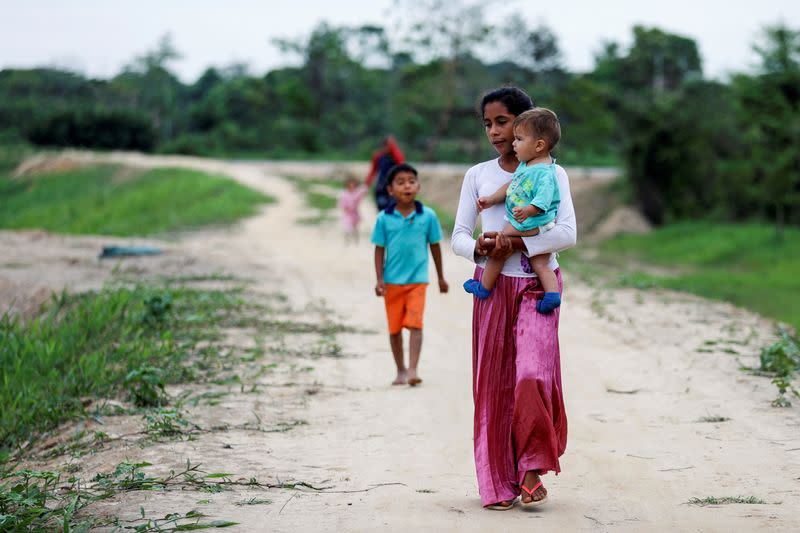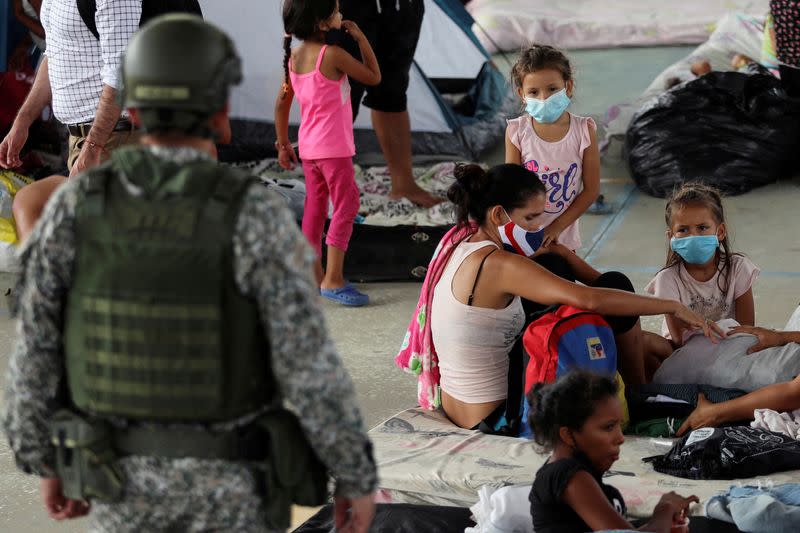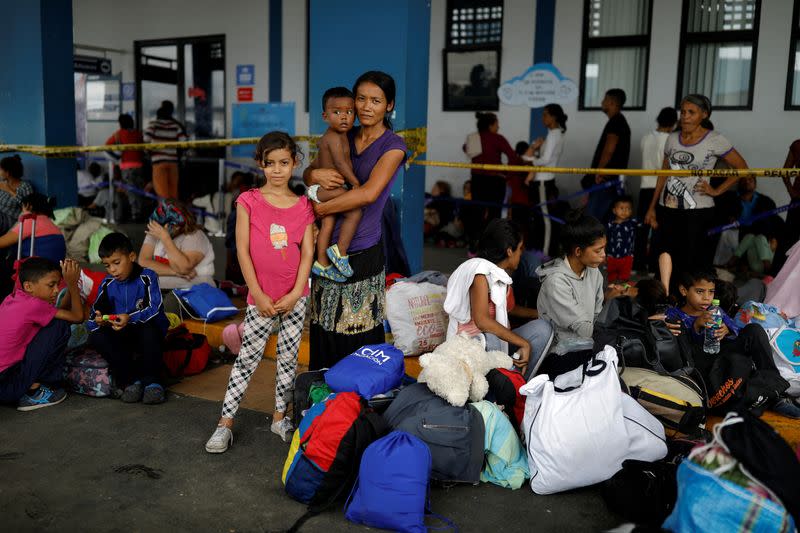Venezuelan refugee women face increasing violence in Colombia, Peru -Amnesty
- Oops!Something went wrong.Please try again later.
By Steven Grattan
(Reuters) - Venezuelan refugee women face rising gender-based violence in Peru and Colombia, as governments are not guaranteeing their "right to a life free of violence," Amnesty International said in a report on Tuesday.
Since Venezuelan President Nicolas Maduro took office in 2013, more than 6 million Venezuelans have fled due to an economic crisis that resulted in chronic shortages of gasoline, water and medicine, as well as human rights violations.
Gender-based violence against Venezuelan women in Colombia increased by 71% between 2018 and 2021, and in Peru by 31% between 2019 and 2021, official government data showed.
Colombia and Peru host more than 50% of those who have fled Venezuela, Amnesty International said.
“Protection from gender-based violence should be a priority for all states in the Americas," Erika Guevara-Rosas, Americas director at Amnesty International, said in a media statement. "Instead, Venezuelan refugee women are facing a double and brutal lack of protection."
Venezuelan migrant women face attacks both along the migration routes and in the places where they settle, the report said.
"In the family, they face economic, patrimonial, physical and sexual violence(...) And in the work environment, they experience various forms of violence and labor exploitation, including being co-opted for work for the purpose of sexual exploitation," the report added.
Amnesty International stressed governments must step up efforts to ensure these women can regularize their migration status to be able to report violence.
“Many Venezuelan women who are victims of male violence and whose lives are at risk prefer not to report for fear of being expelled from the country owing to their documentation status," said Marina Navarro, executive director of Amnesty International Peru.
"The violence and risks they face are exacerbated by the absence of specialized protocols to support and protect them."
(Reporting by Steven Grattan in Mexico City; Editing by Marguerita Choy)



